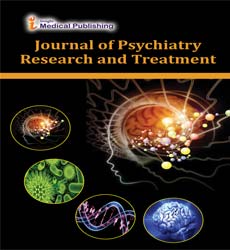Serum S100b role in Schizophrenia
Abstract
Background: Schizophrenia is a chronic mental illness effecting 1% of the population. Multiple hypotheses were proposed in the development of Schizophrenia including Neurodevelopmental, Neurodegenerative, Glial damage, Dopamine and Glutamate irregularities. S100B is a calcium binding protein found in astroglial and Schwann cells. It has important role in CNS development and recovery after injury. Scientific evidence for elevated S100B concentrations in Schizophrenic patients is consistent. This finding was mainly considered to reflect astroglial or blood brain barrier dysfunction.
Materials and Methods: In this observational study, 30 patients of Schizophrenia belonging to age group of 18-60years admitted in Psychiatry ward were selected randomly and their serum S100B protein levels were measured to determine the significance of it in the development of the disease.
Results: The serum levels of S100B were elevated in 5 patients. There is no elevation in significant number of patients.
Conclusion: Elevated levels of S100B helps in strengthening the astroglial damage hypothesis of Schizophrenia.
Keywords: Schizophrenia; S100B protein; Glial damage.
Open Access Journals
- Aquaculture & Veterinary Science
- Chemistry & Chemical Sciences
- Clinical Sciences
- Engineering
- General Science
- Genetics & Molecular Biology
- Health Care & Nursing
- Immunology & Microbiology
- Materials Science
- Mathematics & Physics
- Medical Sciences
- Neurology & Psychiatry
- Oncology & Cancer Science
- Pharmaceutical Sciences
